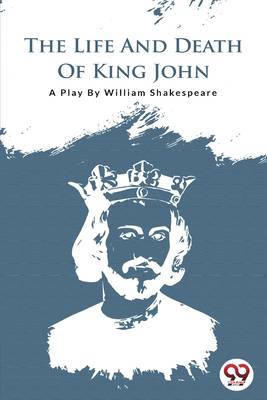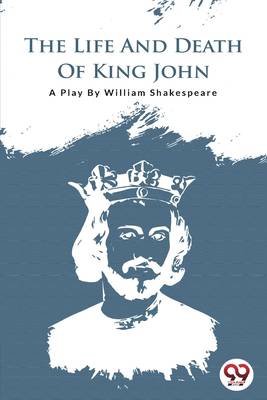
- Afhalen na 1 uur in een winkel met voorraad
- Gratis thuislevering in België vanaf € 30
- Ruim aanbod met 7 miljoen producten
- Afhalen na 1 uur in een winkel met voorraad
- Gratis thuislevering in België vanaf € 30
- Ruim aanbod met 7 miljoen producten
Zoeken
€ 16,95
+ 33 punten
Uitvoering
Omschrijving
The Life and Death of King John, a historical play by William Shakespeare, portrays the rule of John, King of England (ruled 1199-1216), child of Henry II of England and Eleanor of Aquitaine and father of Henry III of England. It is believed to be written during the 1590s but was not published until it showed up in the First Folio in 1623. John (24 December 1166 - 19 October 1216), also known as John Lackland or Softsword, was the King of England from 6 April 1199 until he died. His rule saw the loss of the duchy of Normandy to the French ruler Philip II in 1204, bringing about the breakdown of the vast majority of the Angevin Empire and the development in the force of the Capetian line over the next of the thirteenth 100 years. The baronial revolt toward the finish of John's rule saw the marking of the Magna Carta, a record frequently viewed as an early advance in the development of the constitution of the United Kingdom. Contemporary chroniclers were generally condemning John's activities as lord, and his rule has been an important topic for discussion and intermittent modification by historians from the sixteenth century onwards. Antiquarian Jim Bradbury has summed up the contemporary authentic assessment of John's positive characteristics, it is today typically viewed as a "focused overseer, a capable man, a capable general to see that John". In any case, present-day students of history concur that he likewise had many deficiencies as lord, including what antiquarian Ralph Turner depicts as "disagreeable, even perilous character attributes", like insignificance, resentment, and brutality.
Specificaties
Betrokkenen
- Auteur(s):
- Uitgeverij:
Inhoud
- Aantal bladzijden:
- 106
- Taal:
- Engels
Eigenschappen
- Productcode (EAN):
- 9789394973398
- Verschijningsdatum:
- 22/04/2022
- Uitvoering:
- Paperback
- Formaat:
- Trade paperback (VS)
- Afmetingen:
- 152 mm x 229 mm
- Gewicht:
- 167 g

Alleen bij Standaard Boekhandel
+ 33 punten op je klantenkaart van Standaard Boekhandel
Beoordelingen
We publiceren alleen reviews die voldoen aan de voorwaarden voor reviews. Bekijk onze voorwaarden voor reviews.











